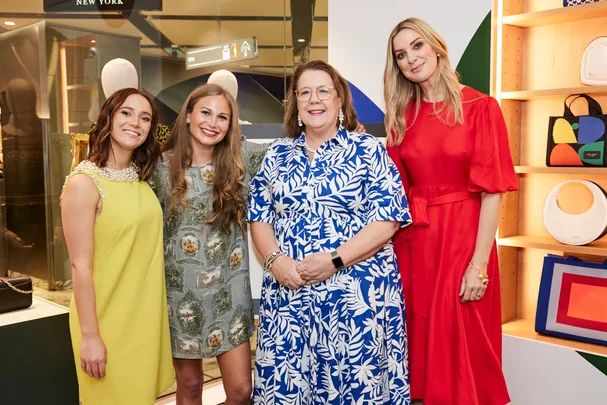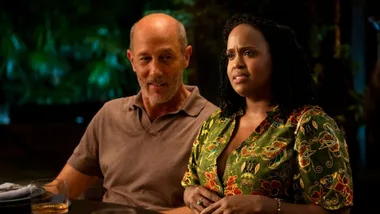As a brand that has championed storytelling for over two decades, marie claire has long understood the power conversations have to ignite change. That’s why, for World Mental Health Day we partnered with Kate Spade and Full Stop Australia to shine a light on why good mental health is foundational to women and girls’ empowerment.
At their intimate boutique store, Kate Spade opened its doors to a slew of powerhouse women including marie claire’s new editor, Georgie Abay who hosted Full Stop Australia’s Director of Clinical Services, Tara Hunter and mental health activist, Jazz Thornton in an empowering panel discussion.
“Having a voice is a privilege,” says Abay, setting the tone for the night with an important reminder on the power of using your platform as a force for change. “There are so many women around the world who do not have a voice, and silence and powerlessness go hand in hand. We all have a responsibility to speak out.”
Content warning: this piece mentions suicide.
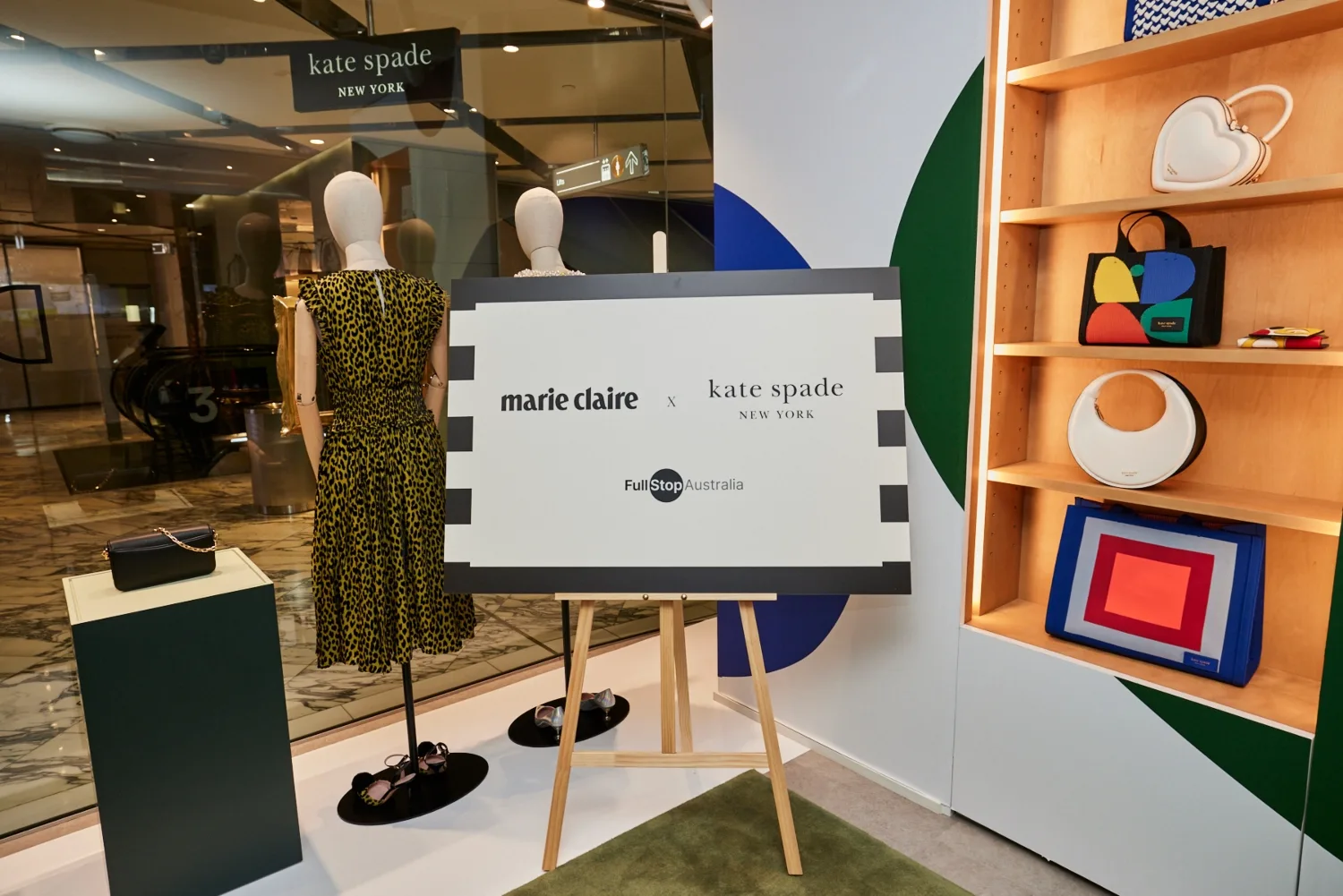
Opening up about her personal mental health challenges, Thornton started the night’s discussion with an anecdote on the conversation that changed her life. “I was 12 years old and we had a speaker come to our school three weeks after I had my first suicide attempt,” says Thornton.
“Later on, I ran into her again when I was in a psychiatric ward and I was bawling my eyes out. She asked me why I was crying and I told her that I was so tired of fighting. She said to me, ‘Jazz, I’m going to be really honest with you. What do you think the definition of fighting is? Because I don’t think you’re fighting. I think you’re only surviving. It’s only when you learn how to fight, that then the change that you want to see will happen.’
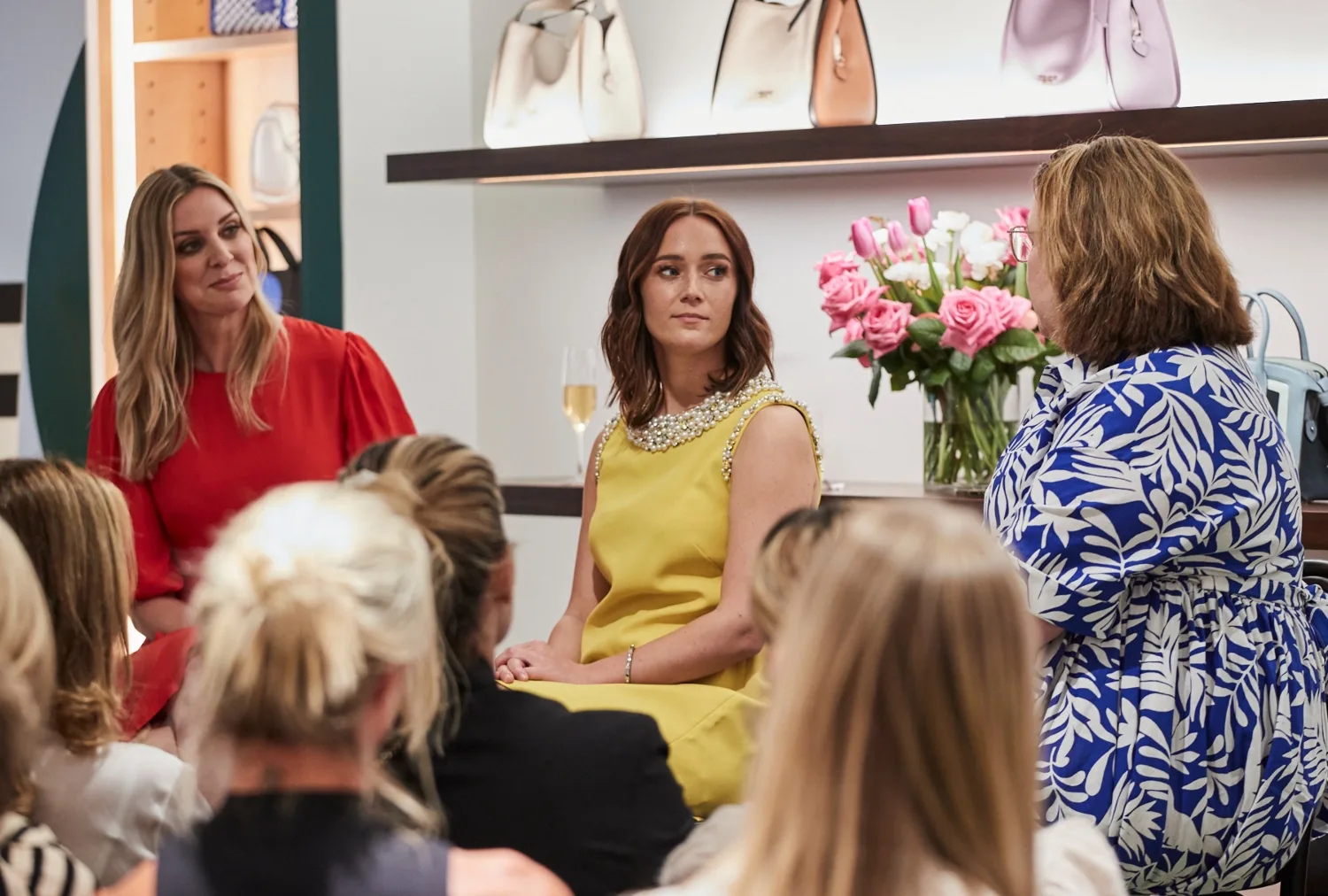
It was this conversation that sparked Thornton’s decision to fight back, as well as igniting her drive for mental health advocacy. She has since gone on to write two books and produce multiple films, including her first film Dear Suicidal Me, which received more than 80 million downloads in 48 hours.
In 2014, Thornton co-created Voices of Hope, a suicide prevention organisation that creates media content such as videos and podcasts and blogs to provide support for those struggling with mental illness. She also volunteers at adolescent psychiatric wards and gives at schools on the importance of mental health.
For Hunter, it was her 25 year purpose-driven career in the social work sector that has brought her to the forefront of Australia’s mental health concerns. Currently the Director of Clinical Services at Full Stop Australia, a sexual domestic and family violence response service that was established in the 70s, Hunter works tirelessly to prevent sexual domestic and family violence through support education and advocacy.
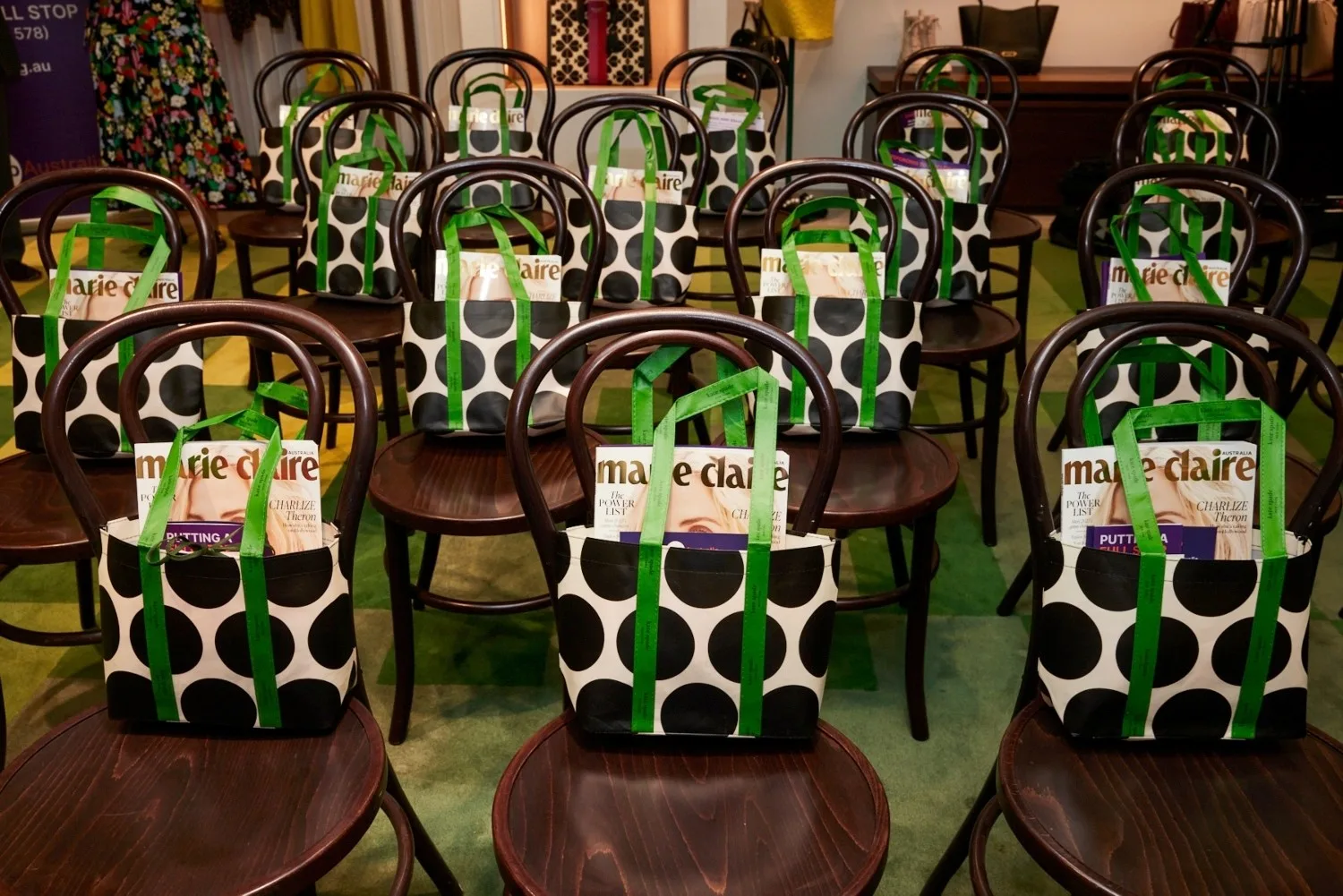
“The biggest driver of violence against women and children is gender inequality. What we need to see is strong structural change and a drive for systemic reform at a broader level,” says Hunter in response to the sobering statistic that one Australian woman is murdered every 10 minutes by someone they know. “While there is hope and resilience, there is still a lot of work to do around educating our broader community in terms of attitudes and making sure people coming forward are believed and really challenging some of those misconceptions.”
With home being declared the most dangerous place for women right now. What can we do to help and support the women in our lives who are experiencing trauma and mental health challenges?
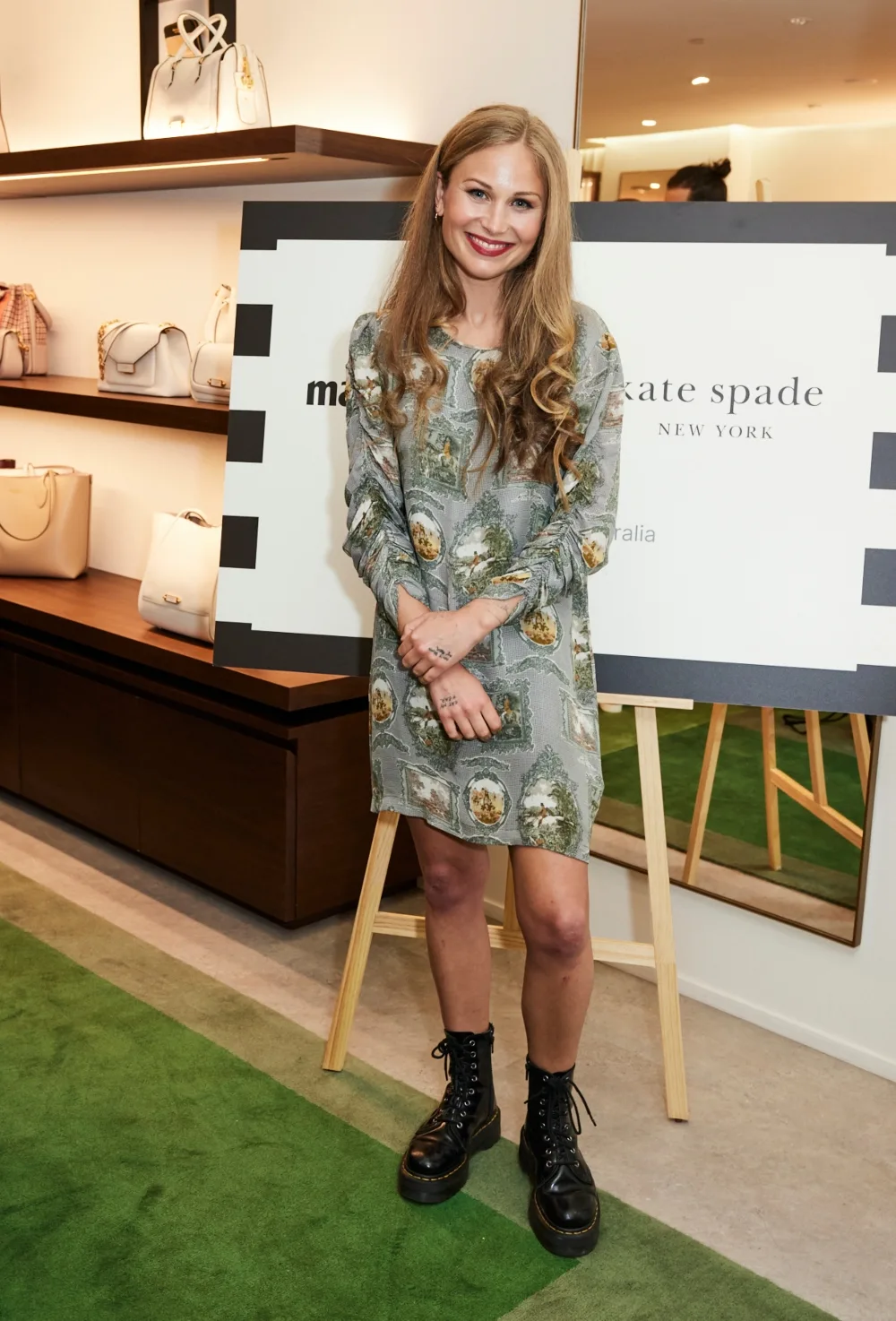
“It’s challenging because it can be really hard to identify. Trauma isn’t a one-size-fits all. Very often, secrecy and shame are internalised by people experiencing trauma,” answers Hunter. “Common signs are low mood, not being able to sleep, feeling unsafe and being hypervigilance. Some of the more broader impacts can be people dropping out of school or the workforce and isolating themselves.
The best thing you can do to comfort someone is simply sitting with them in their distress and that’s really uncomfortable for a lot of us because we want to offer a solution and make someone better. Sitting with someone in that hard time and asking them what they need is the best thing you can do.”
“As women, we are so used to being silenced and telling ourselves that what we’re experiencing is not as bad as someone else’s trauma. We need to learn that our trauma is relative and so we need to stop saying and believing that we don’t deserve help because someone else needs it more,” adds Thornton. “I don’t think anyone can do it alone. We’re not designed to do life by ourselves.”
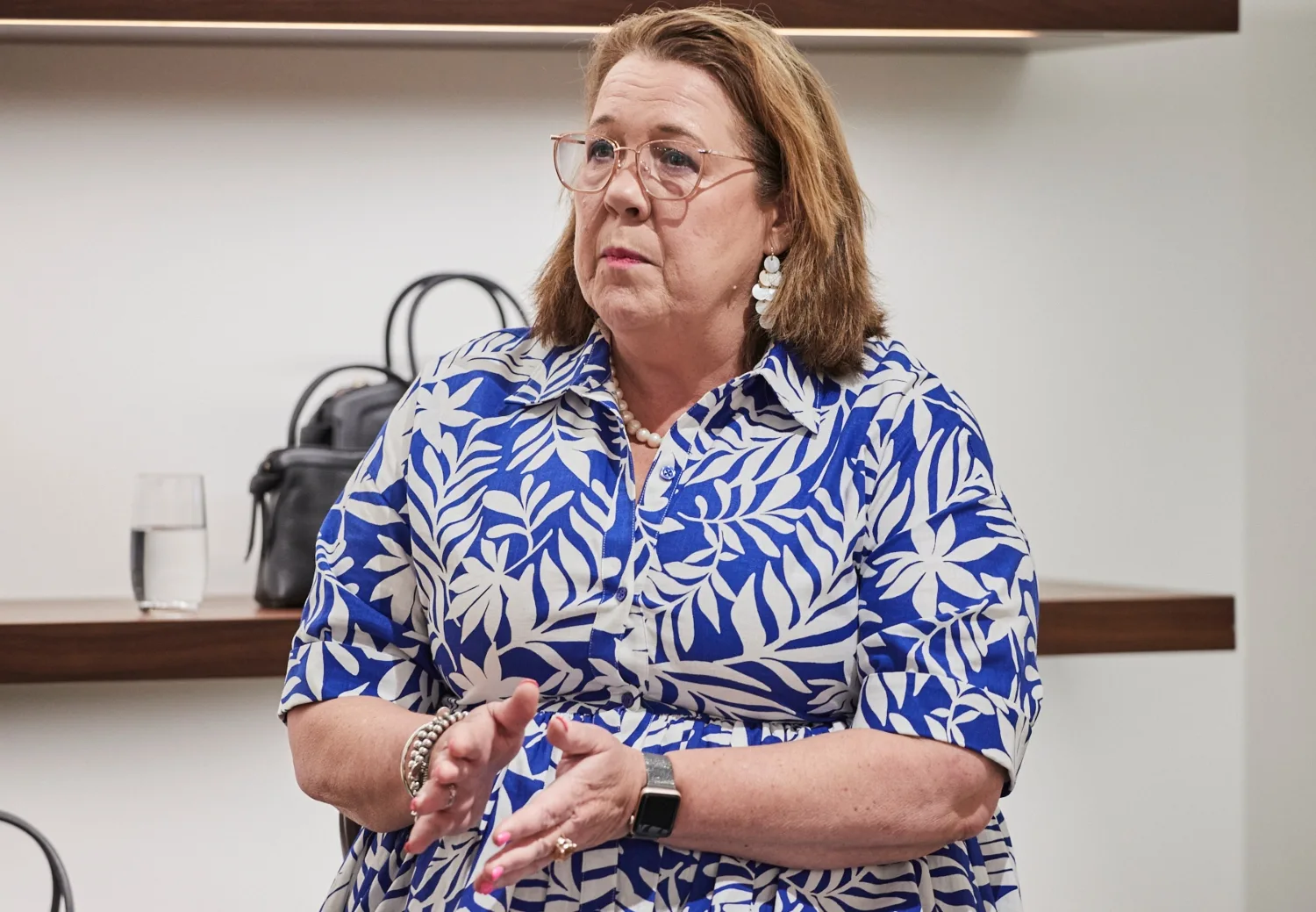
While education and support at a grassroots level is critical to rewriting the narrative around mental health, encouraging businesses and leaders to partner and support advocacy groups is crucial to facilitating change at a systemic level.
For over a decade, Kate Spade have been on a mission to empower women and girls. This year, the fashion powerhouse is investing $5 million in women’s mental health and empowerment globally as part of their commitment to supporting 100,000 girls by 2025.
“I look back at my 12 year old self and these conversations were not happening,” says Thornton addressing the room. “To see businesses not just saying ‘we will tick a box and talk’, but actually doing something, that is so empowering that there is backing behind what we are doing.”
Speaking out takes the power away from silence and as the panel discussion wrapped for the evening, it was clear the women in the women were ready to carry on the conversation.
